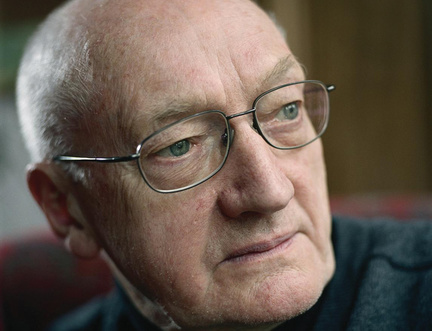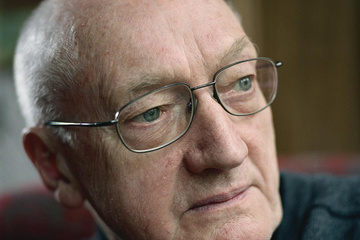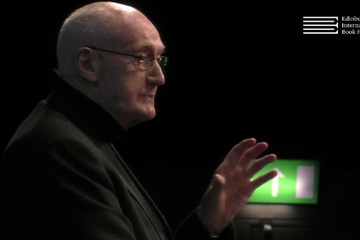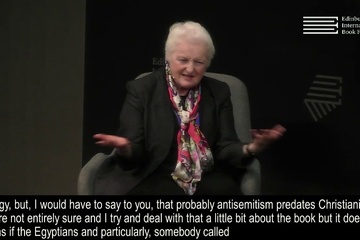More articles Wednesday 14 August 2019 7:00pm
Mansplaining is “rife in Christianity”, says Richard Holloway

Former Bishop of Edinburgh and author Richard Holloway discussed toxic masculinity in Christianity, the harm humans do to each other and how the stories we tell ourselves should never lead to cruelty, in an event chaired by novelist James Runcie at the Book Festival today.
“Whether or not we acknowledge it, we all live by the stories we’ve told ourselves to explain the mystery of our existence, the suffering that accompanies it and the certain death that concludes it. The Christian religion has been one of the most prolific tellers of the stories by which many of us have tried to live, but what story can it possibly tell that will account for the ancient and abiding sorrows of children? That is the great stumbling block that many of us can’t climb over while searching for the meaning of purpose of the universe.”
“If you need a picture to help you, summon the stunned and bloodied image of Omran. The little Syrian boy pulled from the ruins of a bombed out building in Aleppo in August 2016. How can you forget that image that we saw covered in dust and rubble and blood? Twitching, unsure of what happened to him? Hold that in your mind's eye.”
Speaking about the idea that all deaths are justified without certainty by God, even children, Holloway said, “I was never persuaded by the explanations of it, by theologians, they demonstrated to me what has always been a weakness in theological systems. A discomfort with uncertainty that impels a compulsion to explain or account for every mystery under the sun. I want to know if this is not a consequence of the male domination of religious and political systems down through the ages.
“The feminist writer, Rebecca Solnit, coined the term ‘Mansplaining’ to describe the experience of listening to a man condescendingly explaining something to her that he thinks she cannot possibly understand. It’s a well known phenomenon. Solnit attributes it to a combination of overconfidence and cluelessness, a not infrequent combination in the male of the human species and it’s rife in Christianity.
“What happened to theology is what men do. They can try to turn these stories into something they can use. It’s almost another kind of power trip. It is part of this mansplaining thing men do. We are kind of toxically violent about stuff like this. I mean you can even turn theology into a fist. I mean you see it at the moment in the world.
“Given the right circumstances, the harmless satisfaction of the inclination to aggression against a marginal community can lead to the holocaust of six million Jews in Nazi gas ovens in the twentieth century, or through the persecution of Irish Catholic immigrants in Scotland in the nineteenth and early twentieth centuries. An example from our own day in Britain was the state sponsored persecution of the Windrush generation of West Indian immigrants. The effects of which are still reverberating in our divided country today.
“So we should remember that the stories we tell ourselves can have devastating consequences for other people. We should be careful how we tell them and we should probe them for their implicit hatreds and dismissals.”
When asked if he is still a subscriber to the Christian church, the former Primus of the Scottish Episcopal church replied, “I remain a member of the Christian church because it keeps the dangerous memory of Jesus alive. But I’m not suggesting that how I tell the story, the Jesus story, should convince anyone else. I’m no longer in the convincing business, the confident mansplaining. It’s just now, this is the story I try to live by. I hope you have one as well, even if it’s different or one opposed to mine, but whatever your story is, I hope it doesn’t make you cruel and I hope it helps you withstand cruelty in others.
“So there we are then, my answer to the question I began with is, yes I am a Christian, just not a very believing one and I’m fine with that.”
Look, Listen & Read
Find Events
Latest News
 Celebrating the 2024 Book Festival
Celebrating the 2024 Book Festival








